Sustainability
Sustainability is not an option, but a must. We strive to educate, develop, research and implement sustainable solutions at all levels, harnessing the power of technology to create a more environmentally conscious and societal responsible future.

Highlights
Missed something? Scroll down to see all our recent highlights, events, and news.
Our Mission
We are committed to fostering a culture of sustainability that extends beyond technological innovations and encompasses the well-being of our planet, our community, and future generations. Our mission is to integrate sustainability principles into every aspect of our academic and operational endeavors, ensuring that our faculty not only pledges, but pushes environmental responsibility and social consciousness.
Awareness
We’re reducing our environmental footprint by minimizing energy consumption, optimizing resource usage, and promoting eco-friendly practices in our labs, classrooms, and offices. Through research and innovation, we will contribute to sustainable solutions for global challenges such as climate change and resource scarcity.
Education
We are educating our students, faculty members, and staff on the importance of sustainability and its relevance to informatics. Our curricula incorporate sustainability-related issues, enabling our graduates to be not only technically proficient but also environmentally responsible leaders of tomorrow. In 2023, we host the lecture series Sustainability in Computer Science, the first of its kind in Austria – bringing experts from all Austrian CS departments together under the auspices of Informatik Austria.
Research for Sustainable Solutions
We actively engage in research projects that address sustainability challenges. Our faculty collaborates within the field and beyond to develop innovative solutions for renewable energy, conservation, waste reduction, and more. In 2023, the working group “AG Sustainability” was founded to consolidate existing research endeavors at TU Wien Informatics and provide a platform for further synergies. If you want to learn more about current research projects on Sustainability in Computer Science, check out our research section down below.
Lecture Series
The public lecture series covers a wide range of topics that are relevant to students, experts and interested citizens alike. The hunger for energy of Artificial Intelligence (AI), the CO2 emissions of global video conferencing, but also the saving of energy resulting from an awareness of new mobility are just as much a topic as smart cities, the sustainable operation of high-performance data centers and the possible advantages of quantum computers.
Computer Science (CS), and more recently, Artificial Intelligence (AI), has been hailed as the solution to many sustainability problems (and yes, it is!). Still, ensuring energy efficiency and reducing CO2 emissions are crucial to guarantee the responsible and equitable use of our resources.
The Sustainability in Computer Science lecture series is the first of its kind in Austria, with all Austrian CS departments and faculties participating under the auspices of Informatik Austria. After a successful first iteration, the lecture series continues this fall. We want to raise awareness for the importance of Sustainability in CS, demonstrate research solutions to various problems, and trigger developments for a sustainable future.
Missed a lecture?
Recordings, slides, and abstracts from all lectures series are available online:
Direct links to individual lectures from our 2025 series:
- Electric Load Disaggregation
by Wilfried Elmenreich, University of Klagenfurt - From Sustainable IT to the IT for the Sustainable World
by Ivona Brandic, TU Wien - Sustainable Security
by Daniel Gruss, TU Graz - Blockchains and Sustainability
by Krzysztof Pietrzak, ISTA - Sustainability in Software Engineering
by Franz Wotawa, TU Graz - Sustainable Neuromorphic Edge Computing
by Atakan Aral, University of Vienna - Computer Science Between Energy Savings and Waste
by René Mayrhofer, JKU Linz - Space-Efficient Blockchains
by Georg Fuchsbauer, TU Wien - Emerging Paradigms for Sustainable Computing
by Stefan Nastic, TU Wien - Carbon Footprint of Social Media (and other popular platforms)
by Andreas Uhl, PLUS - Reprogramming Computer Science Education for a Sustainable Future
by Michaela Zint, University of Michigan - Green HPC: Paving the Way for Sustainable Supercomputing
by Philipp Gschwandtner, University of Innsbruck
Research
AI-supported Holographic Environmental Water Monitoring
The drinking water provision of Vienna represents one of the most critical infrastructures of the city. In HoloWaterAI, we want to couple holographic microscopy with AI methods to provide new insights in environmental water monitoring. Holographic microscopes will take samples fully autonomously and image each and every light scattering object in the sample volume to see what causes the turbidity. Novel IoT tools coupled with AI based methods and digital twin technology will facilitate real time analysis and thus better decisions with short reaction times. Based on the long term data aggregation, it will be possible to reveal changes in the water quality that cannot be detected otherwise.
COnFIDE - Cryptographic Foundations of Privacy in Distributed Ledgers
While blockchains enable distributed applications that avoid central actors, a current downside is their waste of resources. “Mining”, in proof-of-work-based systems like Bitcoin, consumes enormous amounts of electricity; moreover, most systems require all participants to store huge amounts of data, e.g., the Ethereum blockchain is now over 1 TB. Besides improving user privacy, a goal of COnFIDE is to address the sustainability issues of current blockchain technology. For example, we have proposed protocols that significantly reduce storage demands while providing the same security guarantees.
Knowledge Graph-driven Tour Management for Sustainable Waste Processing
Recycling and waste processing is one of the lynchpins for a sustainable economy and society. In this project, we will use Knowledge Graph-based methods to improve a key part of this recycling process, namely collecting organic waste: In our new target group for the transfer project, mobile devices capture images and metadata within a truck collecting organic waste. Selected materials and items are then identified by a neural network while a garbage bin is being purged. The goal in this transfer project is to improve tour management so that optimized tours with similar types of waste can be computed automatically.
SWAIN - Sustainable Watershed Management Through IoT-Driven Artificial Intelligence
Water resource contamination substantially threatens the environment, and rapid identification of chemicals and their emission sources in watersheds is crucial for sustainable water resources management. Novel Internet of Things (IoT) technologies, coupled with advanced Artificial Intelligence (AI) strategies, may provide faster and more efficient responses to these challenges in real-time reactions as well as long-term planning. SWAIN aims at providing a better understanding and near real-time response to pollution incidents, better prediction of pollution spread and improved response for mitigation of effects in the long run and data-driven AI life-long learning and evolution of the algorithm.
Themis - Trustworthy and Sustainable Code Offloading
The goal of Themis project is to devise fundamentals for the new groundbreaking generation of geographically distributed probabilistic operating systems unifying computation and communication facilities. The idea is to instantly offload arbitrary portions of the code from the end device (like the IoT sensors) to the arbitrary computational surrogates that might be an idle node, your personal laptop, a raspberry pi or any other computational facility. The challenge is to achieve sustainability, while facilitating low latency of hyper heterogeneous, highly volatile tactile Internet applications.
Virtual Shepherd - Satellite-based monitoring of grazing in the Alpine region
The overarching goal of the Virtual Shepherd is the use of integrated satellite-based and terrestrial communication and positioning methods as well as Geospatial Artificial Intelligence & High Performance Computing for sustainable, safe and economical grazing in the Alpine region. The project serves to digitally support grazing livestock farming in the alpine region with the help of GNSS, terrestrial and satellite-based LoraWAN technology, edge computing and geoinformatics - and to economize the work processes and to solve the conflicts of interest with users of the alpine terrain in a technologically sustainable way.
Contact
Want to talk to real people about the challenges we face? Here are the leading experts and primary contacts for our Sustainability efforts.

Nysret Musliu N. Musliu
Associate Professor
Databases and Artificial Intelligence

Emanuel Sallinger E. Sallinger
Full Professor
Databases and Artificial Intelligence

News and Events
Recent highlights, events, and news from all our Sustainability
efforts.
Want more? Head over to our
Newsroom!
Experts in the Media
- Ivona Brandic / KI essen Zukunft auf / Falter / Dec 16, 2025
- Zeta Avarikioti / TU-Wien-Forscherin Georgia Avarikioti erhält Hedy-Lamarr-Preis 2025 / OTS / wien.orf.at / Oct 16, 2025
- Ivona Brandic / Sonderpreis Energie - Shortlist der Jury / Fast Forward Science / Sep 5, 2025
- Ivona Brandic / So viel Strom verbraucht Höflichkeit / ORF.at / Aug 4, 2025
- Ivona Brandic / ChatGPT: Bedanken kostet Strom / ORF ZIB / Aug 4, 2025
- Nikolas Popper / Niki Popper: „Haben keine Glaskugel, aber relevante Informationen“ / Die Presse / Aug 3, 2025
- Ivona Brandic / Wissenschaft erklären: „Chemie ist wie Zwiebel schneiden ohne weinen“ / krone.tv / Wiener Wissen / Jul 13, 2025
- Ivona Brandic / Es geht um Informatik / Wir müssen reden! Fragen statt Glauben! (Podcast) / Jul 10, 2025
- Ivona Brandic / Wissenschaftsministerin Holzleitner gratuliert: Ivona Brandić ist die 500. Wissenschaftsbotschafterin / OTS / Apr 3, 2025
- Ivona Brandic / Energiefresser Künstliche Intelligenz / Schrödingers Katze / Mar 27, 2025
- Ivona Brandic / KI soll weniger stromhungrig werden / Die Presse / Mar 21, 2025
- Ivona Brandic / Schnelleres und umfassenderes Analyseverfahren / Kurier / Nov 29, 2024
- Informatik Austria / Informatik Austria übernimmt Verantwortung: Erfolgreiche Ringvorlesung „Sustainability in Computer Science“ setzt Zeichen für die Zukunft / Oct 7, 2024
- TU Wien/TU Salzburg / Virtual Shepherd: Wie Nachhaltig sind virtuelle Zäune? / Falter / Sep 24, 2024
- Ivona Brandic / So viel Strom fressen Internet und KI-Technologie / Kronen Zeitung / Aug 27, 2024
- Ivona Brandic / Im Park streamen ist für das Klima schlechter als daheim / Wiener Zeitung / Jul 27, 2024
- Ivona Brandic / Supercomputer und Quantenrechner im Duett / University of Innsbruck / Jul 23, 2024
- Ivona Brandic / Stromhunger der KI / Ö1 Mittagsjournal / Jul 4, 2024
- Ivona Brandic / Nachhaltige Solar-Halsbänder für Nutztiere im Virtual Shepherd-Projekt / futurezone / Jun 17, 2024
- Emanuel Sallinger / KI-Technologie: Damit Mist kein Unrat wird / Kurier / Nov 23, 2023
- Ivona Brandic / Der hohe Ressourcenverbrauch von künstlicher Intelligenz / Der Standard / Apr 19, 2023



























































